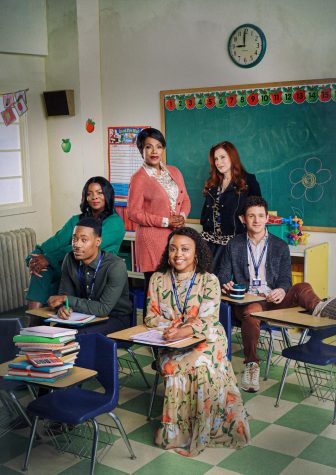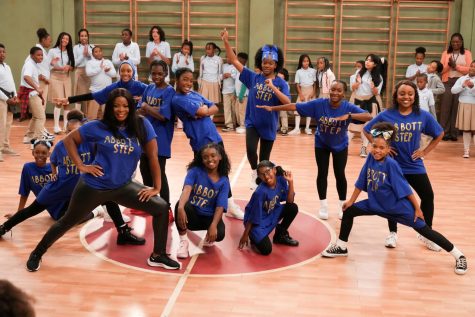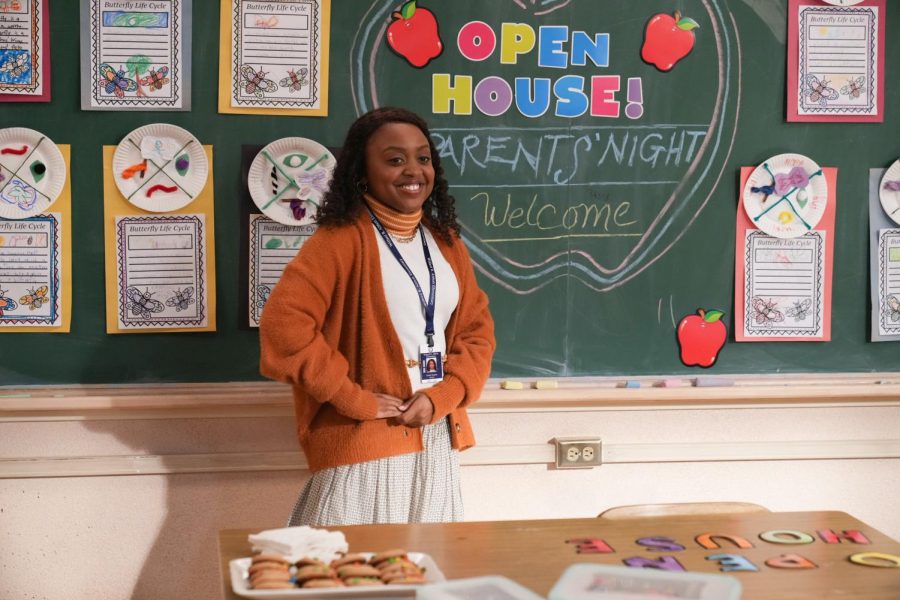‘Abbott Elementary’ highlights issues facing underfunded schools
It’s Open House night at Abbott Elementary, and while Janine prepares to meet her struggling student’s mother, the rest of the faculty uses the time to relax.
May 16, 2022
Depicting situations that teachers may often face, ABC’s “Abbott Elementary” is a comedy series about the misadventures of school staff as they attempt to deal with the realities of working at an underfunded public school. Among the challenges these teachers face at Abbott Elementary is nurturing the success of their students, many of which come from historically marginalized communities.
Shot in a mockumentary style of filming like “The Office,” the show has found itself becoming increasingly popular. Series creator and actress, Quinta Brunson, based the series on her mother’s 40-year experience as a public school teacher, according to Brunson in an NPR interview about the show.
“Despite it getting harder, despite teachers not having all the support they need, despite kids growing even more unruly than they’ve been in recent times … she still loved the job,” Brunson said.
She also named the show after her sixth-grade teacher, Ms. Abbott, whom Brunson said took her under her wing.
To CSUN professor Alexandria Hollett, “Abbott Elementary” allowed her to reflect on her experiences as a former elementary school teacher. She taught first, second, and sixth grade in the Chicago Public Schools system.
While Hollett feels like the show’s storytelling is a bit exaggerated for comedic effect, she found that there is still a lot of truth in it.

“Usually, I don’t watch shows or movies that feature teachers and schools because they are almost completely ridiculous and awful,” Hollett said. “But this one is pretty accurate.”
One of the things about the show that stood out the most to Hollett was the depiction of teachers needing to be resourceful and creative in their classrooms to compensate for the lack of funding for basic school supplies. It was found that roughly 94% of public school teachers spent their own money on classroom supplies, according to a 2021 study conducted by the Institute of Education Sciences.
In the “Abbott Elementary” pilot episode, Brunson’s character attempts to gather money so she can purchase a rug for her students, which was a relatable moment for Hollett.
“And she talks about the rug in a way that I was like, ‘Oh my god, this is so true,’” Hollett said. “When we think about rugs in elementary school classrooms, this is where a lot of learning happens. You’re always pulling kids into the carpet with you. If you don’t have a rug, it makes it really hard to be a teacher.”
Hollett became an elementary teacher by completing an alternative certification program for college graduates who earned a bachelor’s degree in a non-education major.
Hollett feels that such certification programs, like the one she did in Chicago, are not very helpful in ensuring underserved students get access to the best teachers. Relatively inexperienced teachers often get placed in underfunded schools, leaving the students at a disadvantage, according to Hollett.
CSUN alumna and Chalk Preschool teacher, Deriana Hernandez, believes that “Abbott Elementary” portrays many parallels to her own experiences as an educator. Having also worked at Beachy Avenue Elementary School, Hernandez saw some of the inequalities that certain communities faced, many of which are depicted in the show.
An estimated 86% of Beachy Avenue Elementary’s students are considered economically disadvantaged, according to U.S. News & World Report. “There was absolutely zero funding for what the children needed. And their books, I saw they were second hand. A lot of the teachers were juggling different hats,” Hernandez said.
It was a sharp contrast to Hernandez’s own upbringing in Santa Clarita, California, which had funding for different classroom items, according to Hernandez.
In Los Angeles, where almost 80% of students in the Los Angeles Unified School District qualify for free or reduced lunches, many former students can also relate to the sitcom.

Of the various education issues “Abbott Elementary” explores, one of the episodes features the school scrambling to find a replacement for a teacher who quit on short notice. This led to the school janitor having to become a substitute teacher in the meantime.
Emma Thoraval, a former LAUSD student who attended Fairfax High School, experienced a similar issue firsthand.
She recounted how her high school’s physics teacher retired, causing her school to train a different math teacher in physics rather than hiring someone who was already an expert in that subject. Thoraval’s high school also had only one chemistry teacher, who was given no break periods because there was no one else to teach the subject.
“I think my junior year was also the year that there was a huge LAUSD strike,” Thoraval said. “I remember a lot of my teachers being outside, just being like, ‘We want to get paid more and have smaller classes.’”
Despite “Abbott Elementary” exploring some of the harsher realities of underfunded schools, Hernandez believes it is beneficial for more people to become aware of the hardships in education, especially during the COVID-19 pandemic. She has an optimistic outlook on the future of education and the changes that she thinks will come about because of the attention that “Abbott Elementary” is giving to teachers.
“I love that this show came out at the perfect time. It’s highlighting exactly what we need to,” Hernandez said. “With enough noise and enough buzz, we can see a change, and I love that. We needed a show like this.”
